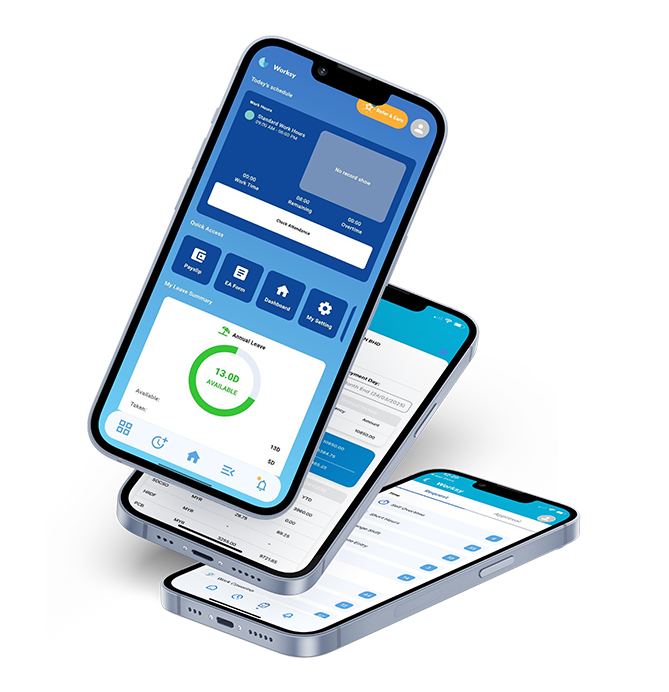scheduled free Worksy HRMS demo.

Understanding Your Leave Entitlements in Malaysia: A Comprehensive Guide
May 23, 2025
Payroll Outsourcing Strategy: A Comprehensive Guide for Malaysia
May 31, 2025Payroll Outsourcing in Malaysia: A Comprehensive Guide for Businesses
Payroll is a critical function for any business, but it can also be complex and time-consuming, especially when navigating Malaysia’s specific employment laws and statutory contributions. For many small and medium-sized enterprises (SMEs) and even larger corporations, payroll outsourcing emerges as a viable solution. This guide will delve into what payroll outsourcing means, its pros and cons, how the process works, key considerations for Malaysian businesses, and how solutions like Worksy HRMS can play a role in efficient payroll management.
Understanding the Basics of Outsourcing
Before diving deep into payroll outsourcing, it’s essential to grasp the broader concept of outsourcing and how payroll fits into this model.
What is Business Outsourcing in Simple Words?
Business outsourcing, in simple terms, is the practice of hiring an external party or service provider to perform tasks, handle operations, or provide services that are typically done by a company’s own employees. Companies outsource for various reasons, such as to reduce costs, access specialized skills, improve efficiency, or focus on their core business activities. This can range from outsourcing customer service and IT support to manufacturing and, pertinent to our discussion, payroll.

Burned out by HR tasks? Worksy automates them for you.
Request free demo now*Terms and conditions apply.
What Do You Mean by Payroll Outsourcing?
Payroll outsourcing specifically refers to contracting a third-party service provider to manage all or part of a company’s payroll processing tasks. This includes calculating employee salaries and wages, managing deductions (like EPF, SOCSO, EIS, and PCB in Malaysia), ensuring timely payments, generating payslips, and handling payroll tax filings and compliance. Instead of an in-house HR or accounting team managing these responsibilities, an external specialist takes over.
What is BPO Payroll and How Does it Relate?
BPO stands for Business Process Outsourcing. BPO payroll is essentially another term for payroll outsourcing. It signifies that the payroll function, a specific business process, is being outsourced to an external provider. Payroll is one of the most commonly outsourced BPO services due to its complexity and the need for specialized knowledge, particularly regarding legal and tax compliance. Many businesses find that partnering with a BPO provider for payroll allows them to leverage expertise and technology they might not have in-house.
Why Consider Payroll Outsourcing? The Pros and Cons
Deciding whether to outsource your payroll is a significant decision. Understanding the potential benefits and drawbacks is crucial for making an informed choice.
Key Advantages of Outsourcing Your Payroll
Outsourcing payroll can offer several compelling benefits for Malaysian businesses:
- Focus on Core Business Activities: By offloading the administrative burden of payroll, business owners and HR teams can dedicate more time and resources to strategic initiatives that drive growth and profitability.
- Cost Savings (Potential): While there’s a fee for outsourcing, it can often be more cost-effective than maintaining an in-house payroll department. This includes savings on salaries, benefits, training for payroll staff, payroll software, and avoiding costly errors or penalties from non-compliance.
- Access to Expertise and Technology: Reputable payroll providers are experts in Malaysian employment laws, tax regulations, and statutory contributions like EPF, SOCSO, and EIS. They also utilize advanced payroll software that ensures accuracy and efficiency, technology that might be expensive for a single business to acquire and maintain.
- Improved Accuracy and Compliance: Payroll errors can lead to unhappy employees and penalties from regulatory bodies. Outsourcing providers specialize in minimizing these errors and ensuring all calculations and submissions for EPF, SOCSO, EIS, and PCB (income tax) are accurate and on time. They stay updated on any changes in legislation, which is vital in a dynamic regulatory environment like Malaysia.
- Enhanced Data Security: Payroll data is highly sensitive. Professional outsourcing firms invest in robust security measures, including data encryption and secure servers, to protect confidential employee information, often exceeding the security capabilities of smaller businesses.
What are the Disadvantages of Outsourcing Payroll?
Despite the advantages, there are potential downsides to consider:
- Loss of Direct Control: Handing over payroll functions means relinquishing some direct control over the process. Businesses must trust the provider to manage this critical function accurately and promptly.
- Potential Security and Confidentiality Risks: While providers strive for security, sharing sensitive employee data with a third party inherently carries some risk. It’s crucial to vet providers thoroughly for their security protocols.
- Hidden Costs or Lack of Transparency: Some contracts may have hidden fees or unclear pricing structures. Businesses need to ensure full transparency in costing before committing.
- Dependency on a Third-Party Provider: Your payroll operations become reliant on the performance and stability of the outsourcing partner.
- Communication Challenges: Misunderstandings or delays in communication can occur, especially if the provider is not responsive or if there are cultural or time zone differences (though less common with local Malaysian providers).
The Payroll Outsourcing Process and Strategy
Understanding how payroll outsourcing typically works and what strategic elements are involved can help businesses navigate this option more effectively.
How Does the Payroll Outsourcing Process Typically Work?
While specifics may vary between providers, the general payroll outsourcing process involves several key stages:
- Initial Consultation and Needs Assessment: The business discusses its payroll requirements, number of employees, pay frequency, specific needs (e.g., leave, claims management), and current challenges with potential providers.
- Data Migration and Setup: Once a provider is chosen, existing employee and payroll data is securely transferred to the provider’s system. This involves configuring the system according to the company’s pay structures and policies.
- Regular Payroll Processing: Before each pay cycle, the business submits relevant data (e.g., new hires, resignations, overtime hours, unpaid leave) to the provider. The provider then calculates gross pay, deductions, and net pay.
- Review and Approval: The provider usually sends a pre-processing report for the business to review and approve before final processing.
- Payment Disbursement and Payslip Generation: Upon approval, the provider facilitates salary payments to employees (often via direct bank transfer) and generates electronic or printed payslips.
- Statutory Contribution Remittance: The provider ensures timely calculation and remittance of statutory contributions (EPF, SOCSO, EIS, PCB) to the relevant Malaysian authorities.
- Reporting and Compliance: The provider generates regular payroll reports for the business and handles year-end reporting requirements, such as the preparation of EA forms.
What Specific Services are Included When You Outsource Payroll?
A comprehensive payroll outsourcing service typically covers:
- Salary Calculation and Disbursement: Accurate calculation of salaries, wages, overtime, allowances, and bonuses, followed by timely disbursement.
- Statutory Deductions (EPF, SOCSO, EIS, PCB) Management: Calculation, deduction, and remittance of all mandatory contributions as per Malaysian law. This includes staying updated with contribution rates and legislative changes.
- Payslip Generation: Providing clear and compliant payslips to employees, often accessible through an online portal.
- Year-End Reporting (EA Forms, etc.): Preparation and submission of annual income statements (EA forms for private sector employees) and other required tax documentation.
- Leave and Claims Management: Many providers offer integrated eLeave management systems and claims processing as part of their service or as an add-on.
- New Hire and Termination Processing: Managing the payroll aspects of employee onboarding and offboarding.
- Reporting: Generating standard and custom payroll reports for management review and accounting purposes.
What is the Payroll Outsourcing Strategy?
A payroll outsourcing strategy involves more than just finding a vendor. It’s a planned approach to ensure the outsourcing arrangement aligns with business goals. Key elements include:
- Defining Your Objectives: Clearly articulate what you aim to achieve by outsourcing payroll (e.g., cost reduction, improved compliance, focus on core business, access to better technology).
- Evaluating In-House vs. Outsourced Options: Conduct a thorough cost-benefit analysis. Consider not only direct costs but also indirect costs like time spent by staff, potential error costs, and software expenses if managed in-house. Compare this against the fees and services offered by outsourcing providers.
- Selecting the Right Provider: This is a critical step. Evaluate potential providers based on their experience (especially with Malaysian regulations), reputation, client testimonials, technological capabilities, security measures, and pricing.
- Service Level Agreement (SLA): Ensure a clear SLA is in place, detailing the scope of services, performance metrics, responsibilities of both parties, data security protocols, and dispute resolution mechanisms.
- Managing the Relationship and Performance: Maintain open communication with your provider. Regularly review performance against the SLA and provide feedback to ensure the service continues to meet your needs.
Payroll Outsourcing in Malaysia: Specific Considerations
Outsourcing payroll in Malaysia comes with its own set of local nuances that businesses must be aware of.
Choosing a Payroll Outsourcing Provider in Malaysia: Key Factors
When selecting a payroll partner in Malaysia, consider these crucial factors:
- Expertise in Malaysian Labour Laws and Statutory Requirements: The provider must have in-depth knowledge of the Employment Act 1955, and regulations concerning EPF, SOCSO, EIS, Potongan Cukai Bulanan (PCB), and Human Resources Development Fund (HRDF). Look for providers who demonstrate a strong understanding of how HR systems keep Malaysian businesses compliant.
- Reputation and Client Testimonials: Check reviews, ask for references, and assess their track record, particularly with businesses of similar size or industry in Malaysia.
- Technology and Software Used: Inquire about the payroll software they use. Is it modern, secure, and user-friendly? Does it offer features like employee self-service portals? Cloud-based HR software is often preferred for its accessibility and real-time updates.
- Service Level Agreements (SLAs): A clear SLA outlining deliverables, timelines, responsibilities, and support is essential.
- Pricing Structure and Scalability: Understand the complete fee structure, including any potential additional charges. Ensure the provider can scale their services as your business grows.
- Data Security and Confidentiality: Verify their data protection measures, compliance with PDPA (Personal Data Protection Act 2010) in Malaysia, and disaster recovery plans.
Ensuring Compliance with Malaysian Regulations (EPF, SOCSO, EIS, PCB)
A primary reason businesses outsource payroll is to ensure compliance. Your chosen provider must be proficient in managing all aspects of Malaysian statutory contributions:
- KWSP (EPF): Correct calculation of employer and employee contributions and timely remittance.
- PERKESO (SOCSO & EIS): Accurate contributions for both Employment Injury Scheme & Invalidity Scheme, and the Employment Insurance System.
- LHDN (PCB/MTD): Precise monthly tax deductions for employees and submission to the Inland Revenue Board of Malaysia.
The provider should also handle all related filings and keep abreast of any changes in rates or regulations announced by these bodies.
Understanding Common Costs Associated with Payroll Outsourcing in Malaysia
Costs can vary based on the provider, the number of employees, and the range of services included. Common pricing models include:
- Per Employee Per Month Fee: A fixed fee for each employee processed.
- Tiered Pricing: Different price brackets based on the number of employees.
- Custom Quotes: For larger businesses or those with complex requirements.
Be sure to clarify what’s included in the base fee and what services (e.g., year-end reporting, ad-hoc reports, claims processing) might incur extra charges. Some providers might also have a one-time setup fee.
Worksy HRMS: Streamlining Your Payroll Management in Malaysia
While full payroll outsourcing is an option, modern HR Management Systems (HRMS) like Worksy HRMS offer powerful tools that can significantly simplify and automate in-house payroll processing, or even complement an outsourced model.
How Worksy HRMS Can Help Businesses Manage Payroll Effectively
Worksy HRMS is designed with the needs of Malaysian businesses in mind, offering features that directly address payroll complexities:
- Automated Calculations for Accuracy: Worksy HRMS can automate the calculation of salaries, overtime, allowances, and, crucially, statutory deductions like EPF, SOCSO, EIS, and PCB, minimizing manual errors. The built-in PCB calculator for Malaysia and salary calculator functionalities ensure precision.
- Integrated Statutory Compliance Features: The system is kept up-to-date with the latest Malaysian employment laws and contribution rates, helping businesses stay compliant effortlessly. It can generate the necessary reports and files for online submission to statutory bodies.
- Employee Self-Service Portal: Employees can access their payslips, EA forms, apply for leave, and submit claims through a portal, reducing HR’s administrative workload.
- Secure Data Management: Worksy HRMS provides a secure, often cloud-based platform, for storing sensitive employee and payroll data, with access controls and data backup.
- Comprehensive HR Solution: Beyond payroll, Worksy HRMS often integrates other HR functions like attendance management, leave management, claims, and performance appraisals, providing a holistic HRIS system.
Worksy HRMS: A Powerful Tool for In-House Payroll vs. Full Outsourcing
For businesses that prefer to keep payroll in-house but want to overcome the challenges of manual processing, Worksy HRMS offers a robust solution. It empowers your HR team with the tools and automation needed for efficient and compliant payroll management. It can be a more controlled and potentially cost-effective alternative to full outsourcing, especially for SMEs that want greater oversight.
Even for companies that partially outsource (e.g., only year-end submissions), Worksy HRMS can streamline the internal data preparation and management processes, making collaboration with the outsourcing provider smoother. Understanding the role of HR software in modern businesses highlights how such tools are becoming indispensable.
Conclusion: Is Payroll Outsourcing Right for Your Malaysian Business?
The decision to outsource payroll or leverage an advanced HRMS like Worksy HRMS depends on your company’s specific needs, size, resources, and strategic goals.
Payroll outsourcing can be an excellent choice for businesses in Malaysia looking to:
- Reduce administrative burdens and focus on core operations.
- Ensure compliance with complex local regulations without hiring specialized staff.
- Potentially save costs associated with in-house payroll management.
- Gain access to expert knowledge and advanced payroll technology.
However, it’s crucial to weigh the benefits against potential drawbacks like loss of direct control and the costs involved.
Alternatively, implementing a comprehensive HRMS solution like Worksy HRMS can provide many of the same benefits—accuracy, compliance, efficiency—while retaining payroll in-house, offering greater control and integration with other HR functions.
Ultimately, carefully evaluate your internal capabilities, the complexity of your payroll, your budget, and your long-term business strategy. Whether you choose to outsource, implement an HRMS, or use a hybrid approach, the goal is to ensure your payroll is managed accurately, compliantly, and efficiently, supporting both your business and your employees in Malaysia.
Frequently Asked Questions (FAQ) About Payroll Outsourcing
How much does it cost to outsource payroll in Malaysia?
The cost of payroll outsourcing in Malaysia typically ranges from RM30 to RM100+ per employee per month, depending on the provider, the range of services included (e.g., basic processing vs. full HR support), and the total number of employees. Some providers may also have a minimum monthly fee or a one-time setup cost.
Is it safe to outsource payroll?
Outsourcing payroll can be very safe if you choose a reputable provider with robust data security measures and a clear policy on data confidentiality compliant with Malaysia’s PDPA. Always vet potential providers for their security certifications, data encryption methods, and disaster recovery plans.
What size of business typically benefits most from payroll outsourcing?
Small to medium-sized enterprises (SMEs) often find significant benefits as they may lack dedicated payroll expertise or resources. However, larger companies also outsource payroll to streamline operations, ensure compliance across multiple locations, or manage complex payroll scenarios.
Can I outsource only specific parts of my payroll?
Yes, many providers offer flexible services. You might choose to outsource only the calculation and statutory submission aspects, while handling data entry or disbursement in-house. This is often referred to as co-sourcing. Discuss your specific needs with providers to see what customizable options are available.
How does Worksy HRMS ensure compliance with Malaysian payroll regulations?
Worksy HRMS is designed with Malaysian regulations at its core. It automates calculations for EPF, SOCSO, EIS, and PCB based on current rates. The system is regularly updated to reflect changes in labor laws and tax requirements, generates compliant payslips and statutory reports, and often facilitates e-submission to relevant government portals. Its role in keeping businesses compliant is a key feature.

Tired of HR chaos? Let Worksy simplify your workflow.
Request free demo now*Terms and conditions apply.





